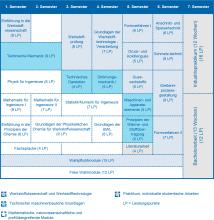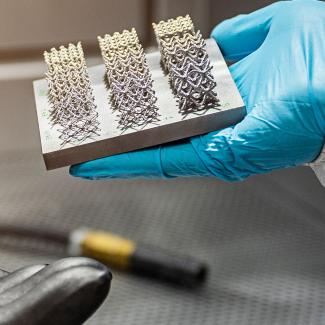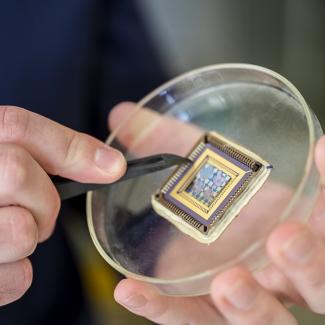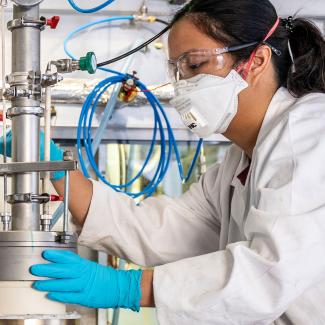Foundry Engineering
Around 500 foundries in Germany supply the automotive industry, mechanical engineering and electrical engineering with high-quality cast components. No wind turbine or motor vehicle would move without cast parts. Even many small parts, such as those required for precision mechanics or medical technology, are cast. Casting is the fastest way from material to component. Foundry engineers provide engineering support throughout the entire process - from simulation calculations, preparation of the liquid metal, casting, solidification of the molten metal and subsequent further processing of the casting. You will be responsible for production as well as being involved in material selection and product development.
If you are interested in mathematical, scientific and technical issues in the metal industry and especially in their direct implementation in practice, this degree programme offers solid training in a sought-after profession. Here, material science and technological knowledge of foundry engineering is taught in an application-orientated way. In addition, the industrial internship and the external Bachelor's thesis provide the desired and necessary practical relevance by familiarising students with modern companies and technologies.
- Faculty
-
Faculty of Materials Science and Technology (Faculty 5)
- Degree
-
Bachelor of Science (B. Sc.)
- Standard period of study
-
7 Semester
- Part-time possible
-
Yes
- Start of studies
-
Winter semester
- Admission requirement
-
Abitur or subject-specific higher education entrance qualification or an entrance qualification recognized as equivalent
Language requirement
- Application: with at least B1 level German
- Admission to the degree program: with C1 level German (e.g. DSH-2)
- language courses and DSH exam at TUBAF
- Course language
-
German
Foundry industry: e.g. technical management, production management, materials development, product development, CAD and simulation experts, quality assurance
Automotive industry, mechanical engineering: e.g. quality assurance, materials development, product development
Supplier industry: e.g. application technology, technical sales, consulting
. Quality management, materials development, product development
Supply industry: e.g. application technology, technical sales, consulting
Other fields of activity: e.g. public service, engineering offices, management consultancies, employers' liability insurance associations, private and public testing institutes
Why study Foundry Engineering at TUBAF?
Students find the best study conditions thanks to solid professional support. State-of-the-art equipment and laboratory facilities are available to them. Students have the opportunity to be involved in scientific work at an early stage as a student assistant and to work closely with doctoral students.
The close link between manufacturing technologies, material properties and applications as well as the internal structure of the materials practised in Freiberg is unique at German universities. This understanding in particular is an essential prerequisite for a successful career in the field of materials science and materials technology. And this is precisely where the degree programme in Freiberg differs significantly from other universities in Germany.
Further study programmes at TUBAF
Introduction to the degree programme
Presentation of the degree programmes Materials Science and Materials Technology (Diploma) and Foundry Technology (B.Sc./M.Sc.) on Online Campus Day 2021
Image video
The world of materials - engineering studies at the TU Bergakademie Freiberg



